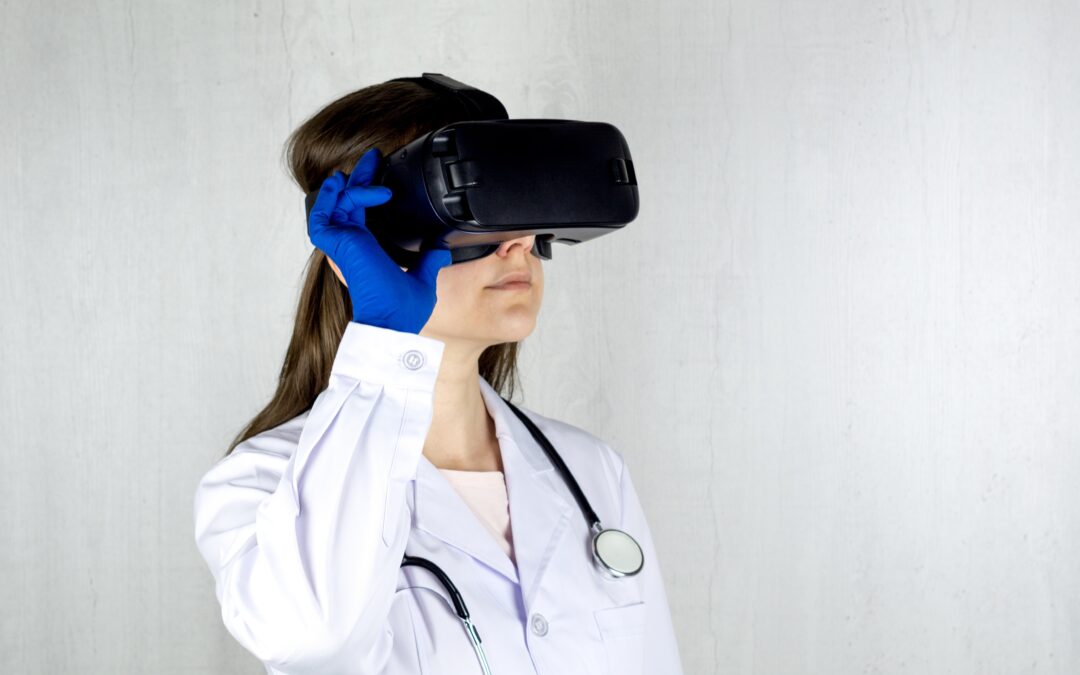Heightened by the pandemic, digital advances and new technology are continuing to revolutionise healthcare. There are now over 3,000 health-tech start-ups and scale-ups within the UK, with 400 of these companies recording high growth (over 20% annually).
In 2020, global venture capital investment for health-tech innovators reached its highest figure to date ($14 billion), with nearly two-thirds of total funding Series C and above. The ten largest deals of the year were completed within the United States; the top five companies to raise capital being Bright Health, which obtained over $500m, Zwift $450m, Grail £390m, Olive £384m, and Oscar $365m.* Valuations have increased as investors focus on companies with established value propositions. According to Deloitte Insights, investors believe this activity will result in a ‘multiyear opportunity in health care innovation’; and that high premiums are not indicative of a valuation bubble.**
A shifting dynamic
However, the number of startups arising on the scene may challenge this dominance in the future. The European market is fast becoming a centre of excellence for innovative health-tech disruptors, shifting attention away from the American and Asia-Pacific hubs.
In 2020, health-tech investment made up 12% of total investment in UK tech firms, second only to the Fintech sector and a result of several large-scale deals such as the $100m raised by Babylon Health (part of the biggest health-tech deal of 2019 which saw a huge cash injection of $550m).
Additionally, of the €9.8b VC invested so far in 2021 in the UK, €1.7b was attributable to health-related business (17%). Denmark follows the UK with €901m of investment so far this year; this has already surpassed last year’s figure of €168m by a huge margin. Germany, the country that has consecutively received the second-highest amount of general VC investment after the UK in Europe since 2015, also detailed €295m in VC funding for health companies.
Which companies are the big players?
As of 2021, Babylon Health’s total funding stands at $631.1m. Other prominent Europe-based health tech scale-ups include Franco-German Doctolib which secured the second-highest figure in terms of European investment at $266.7m, Swedish KRY which comes in third place gaining $251.8m, and Polish Docplanner with $140.5m. What is interesting is that these companies are united by a common thread: they all operate within the telehealth sector and exist to streamline the process of patient-doctor appointment booking.
The pandemic has changed long-held perceptions about the nature of care and its delivery. It has highlighted the inadequacies of current systems that have been overwhelmed and exasperated by the restrictions. Telehealth services have come to the forefront in this time to fill the gap, offering patients an alternative and efficient way to access medical treatment and advice.
Remote and virtual care, whilst an efficient and much-needed modernisation for some, cannot fully replace a personal experience in what is an extremely human sector. Despite 76% of patients being interested in telehealth (a jump from the 11% recorded pre-pandemic), only 46% indicated they use digital health services.*** Issues of accessibility and integration highlight that culture is arguably the main challenge to digital healthcare transformation.
What else is hot in health-tech?
The surge of telehealth is one of the more visible trends within health-tech; to remain competitive businesses are expanding into related sectors to develop complementary services such as E-Prescriptions and EHR/ Electronic Medical Records optimisation. To support digital healthcare provision, organisations have also transitioned towards cloud computing, allowing them to have a decentralised and increasingly connected data storage approach. Spending on cloud-based infrastructure increased by 11% in the second quarter of 2020 (in contrast with the same period in 2019), with most mid-large organisations aiming to implement a hybrid strategy at the minimum.****
Innovations have been made elsewhere in the medical research and development fields as well as within AI and deeptech. An emerging emphasis on wellbeing support and preventative lifestyle measures beyond traditional medical care is notable, especially in the climate of the pandemic with immense social disruption and isolation amplifying loneliness, stress and depression.
The impact on mental health has been profound. Data suggests that the prevalence of mental disorders such as depression and anxiety have at least tripled so that one in three of us meet the threshold for a diagnosis. This is a true second pandemic alongside the virus itself.
– Koa Health CEO Oliver Harrison speaking to HEQ
The treatment of mental health has been placed under the microscope as a result of this crisis. With resources already stretched thinly, tech could be the answer to many problems from unaffordable care, reducing stigma and closing the gaps in clinical knowledge.
The future of health tech looks promising. Mass new investment of start-up and scale-ups across the globe, in addition to the continued large-scale cash injections into larger established organisations, signifies that there is no shortage in healthcare innovation and support. Moreover, VC rounds in 2021 are compensating for funding stagnation in 2020, especially promising as the lingering effects of COVID-19 remain to be seen. The challenge will be how these innovations are integrated into current healthcare systems and marketed to wider society.
At Insight, we are prepared to see another rise in heath-tech related vacancies. Our Technology Recruitment team is primed to work with clients within the industry, if you have a requirement, get in touch with our specialists today!
Resources:
Statistical Data from Dealroom.com
** https://www2.deloitte.com/us/en/insights/industry/health-care/health-tech-private-equity-venture-capital.html
*** McKinsey COVID-19 Consumer Survey, April 27, 2020.
Insight Recruitment’s Tech division have recruited technical professionals for high profile businesses in the Health-Tech sector. For more on our Tech specialisms take a look at our dedicated section here.
See More From Our Blog
Meet Our New Mission Critical Team Member – Jacob Jackson
Here at Insight Recruitment, we’re excited to further expand and strengthen our Mission Critical team. Jacob Jackson joins the Insight family in the position of Recruitment Consultant specialising in the Mechanical industry…
read moreIndustry Update – The Evolution of the Data Centre Market in Europe
In today’s digital age, data centres serve as the backbone of our interconnected world. They are the central hubs powering the storage, processing, and distribution of vast amounts of information…
read moreIndustry Update – Technology Innovations in the US
In today’s ever-evolving world, the United States continues to be at the forefront of technological innovations, shaping industries and driving global progress…
read moreMeet Our New US Tech Team member – Joe Flower
Here at Insight Recruitment, we’re excited to further grow our US Tech team as we aim to explore new markets…
read moreMeet Our New Mission Critical Team Member – Georgia
Here at Insight Recruitment, we’re excited to further expand and strengthen our Engineering team. Georgia Ellyatt joins the Insight family in the position of Recruitment Consultant specialising in the Mechanical & Electrical industry.
read moreMeet Our New Operations Team Member – Anna Prudencio
Here at Insight Recruitment, we’re excited to further grow our Operations team as we aim to Empower Sustainable Growth…
read more








Recent Comments